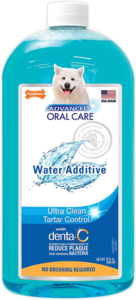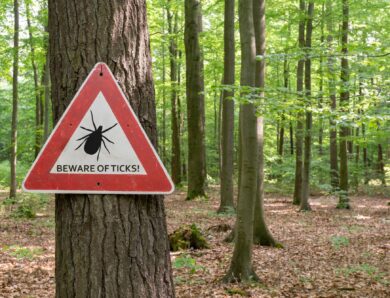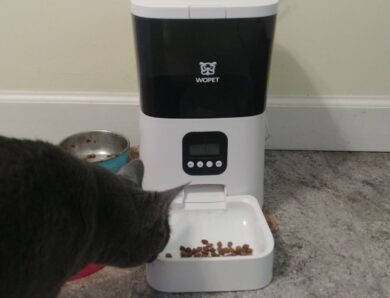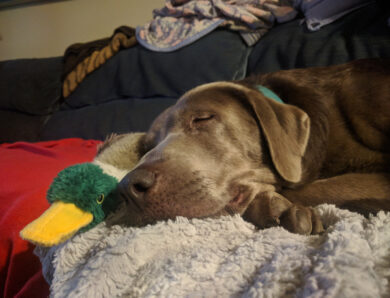
How to Care for Your Dog’s Teeth Without Brushing
Brushing your dog’s teeth regularly is the best way to protect them from periodontal disease. But for some dog parents, that’s not a possibility, leaving them wondering how else to care for their dog’s teeth.
Eighty percent of dogs will have some level of periodontal disease by the age of 3, making dental care a priority for dog parents. Without preventative measures, dogs will suffer from tooth pain, leading to excessive whining, loss of appetite, and bad breath — at a minimum.
Dogs with periodontal disease can also suffer from organ damage caused by the bacteria that is released into their body by infected tooth roots and gums. Dogs with advanced periodontal disease are more prone to kidney, heart, and liver damage than dogs without periodontal disease.
To help ensure their fur babies have a long, healthy life dog owners must provide daily preventative dental care. But what do you do if you can’t brush your dog’s teeth?
While not as effective as brushing, dental water additives and sprays, tooth rinses and wipes, and chew toys and edible dental treats can all play a part keeping your dog’s teeth healthy, especially if used in combination with each other.
As with most dog products, reach out to your veterinarian to see what he or she recommends. Not all additives, sprays, rinses and wipes do what they claim.
You can also look for products marked with the Veterinary Oral Health Council (VOHC)’s seal of approval. It’s important to note, the VOHC only tests products that are submitted to it by the manufacturer. There are good dental health products on the market that don’t have the VOHC seal because they were never submitted. Again, this is where a good vet can help with recommendations.
Dental Water Additives

The easiest tool is a dental water additive, which can simply be added to your dog’s water bowl. (Always follow the directions and stick with the recommended dosage.)
Though additives can’t compare to the effectiveness of brushing your pup’s teeth, they can slow down the progression of gum disease. They are especially useful in combination with other preventative measures.
Do not expect immediate results from a water additive. And, if your dog has advanced tooth disease already, additives will do nothing to help.
The only dental water additives, sprays, and wipes with the VOHC Seal of Acceptance are made by HealthyMouth. But that doesn’t mean there aren’t other brands that won’t work as well.
Do you have a noise-sensitive pup? Learn more about how what dogs hear can affect their mood.
Dental Sprays

Another option for dog parents who are unable to brush their fur baby’s teeth is a dental spray. Keep in mind, they do require being able to get near your dog’s mouth.
Dental sprays do a great job freshening your dog’s breath so are great for pups with halitosis (bad breath). But they also contain enzymes that will begin the process of breaking down plaque. However, just breaking down plaque isn’t particular useful on its own. You need something to remove the broken-down buildup.
Good follow-up options are teeth wipes or chew toys.
Dental Wipes & Rinses
If your dog will let you put your fingers in his mouth — and you feel comfortable doing so — one of the best ways to clean your dog’s teeth without brushing is with dental wipes or a dental rinse. While not as effective as brushing, when combined with an additive or spray, you can get a decent amount of buildup off.
Rinses, which usually contain a substance such as chlorhexidine (used to treat gingivitis in people), can be poured onto gauze, which you wrap around your finger and rub on your dog’s teeth.
Dental wipes are similar except they come pre-soaked with ingredients like baking soda or chlorhexidine that kill bacteria on your pup’s teeth and reduce the accumulation of plaque and tartar.
Welcoming a new puppy into the family? Check out our ultimate new puppy checklist.
Dental Chew Toys
Many dog chew toy companies make versions of their products specifically designed to help with canine dental health. Look for toys with depressions and bumps that massage the gums and help clean teeth of tartar and plaque. They are most effective when used in combination with a water additive, spray, or rinse.
As with all chew toys, be careful what you choose. And supervise all chew sessions to prevent injury to your dog. Find out more about dog chew toy safety basics.
Edible Dental Treats
Giving your pup edible dental treats is another easy way to help keep your dog’s teeth healthy.
Dental treats are designed to break down bacteria, and the act of chewing — along with a textured surface — helps remove some of the built-up tartar and plaque.
There are myriad dental treats to choose from, with several brands offering products accepted by the Veterinary Oral Health Council. The come in diverse shapes and sizes, and some are even created specifically for different stages of life.
For instance, Greenies makes a VOHC-accepted treat for aging dogs, as well as one for puppies, both available in multiple sizes.





